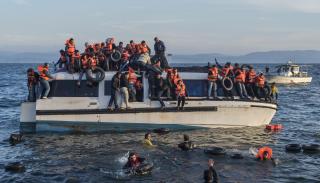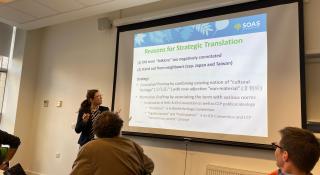
Breadcrumbs navigation
Torturous journeys: Cruelty, international law, and pushbacks and pullbacks over the Mediterranean Sea
Jamal Barnes discusses the key takeaways from his article in BISA journal Review of International Studies (RIS).
Boat pushbacks and pullbacks by Italy and the European Union (EU) have returned migrants and refugees to Libya where they have been subjected to brutal human rights violations, such as torture and ill-treatment. This article argues that these pushbacks and pullbacks not only undermine key human rights principles, but they are also an act of cruelty. The article sheds important light on the factors that lead to the torture of migrants and refugees on their migration journeys and offers new insights into the relationship between cruelty, migration policies, and indifference to human suffering.
You can read the full article at: https://doi.org/10.1017/S0260210522000110
This particular article is open access, however BISA members receive access to all articles in RIS (and our other journal European Journal of International Security) as a benefit of membership. To gain access log in to your BISA account and scroll down to the 'Membership benefits' section. If you're not yet a member join today.
Full abstract
Boat pushbacks and pullbacks by Italy and the European Union (EU) have returned migrants and refugees to Libya where they have been subjected to brutal human rights violations, such as torture and ill-treatment. This article argues that these pushbacks and pullbacks not only undermine key human rights principles, but they are also an act of cruelty. As Italy and the EU have used the law to evade their international human rights and refugee obligations, the law has had distributive effects that have shaped migration pathways and exacerbated the vulnerability of migrants and refugees to torture. Not only have legal manoeuvres stripped migrants and refugees of their rights, enabling Italy and the EU to return people to inhumane detention centres in Libya, but they have also had the sinister side effect of excluding migrants and refugees from moral concern. As Italy and the EU have sought to evade legal responsibility, it has created indifference to the suffering of people on the move in Libya. This article sheds important light on the factors that lead to the torture of migrants and refugees on their migration journeys and offers new insights into the relationship between cruelty, migration policies, and indifference to human suffering.
Photo by Ggia. Licensed under the Creative Commons Attribution-Share Alike 4.0 International license.


